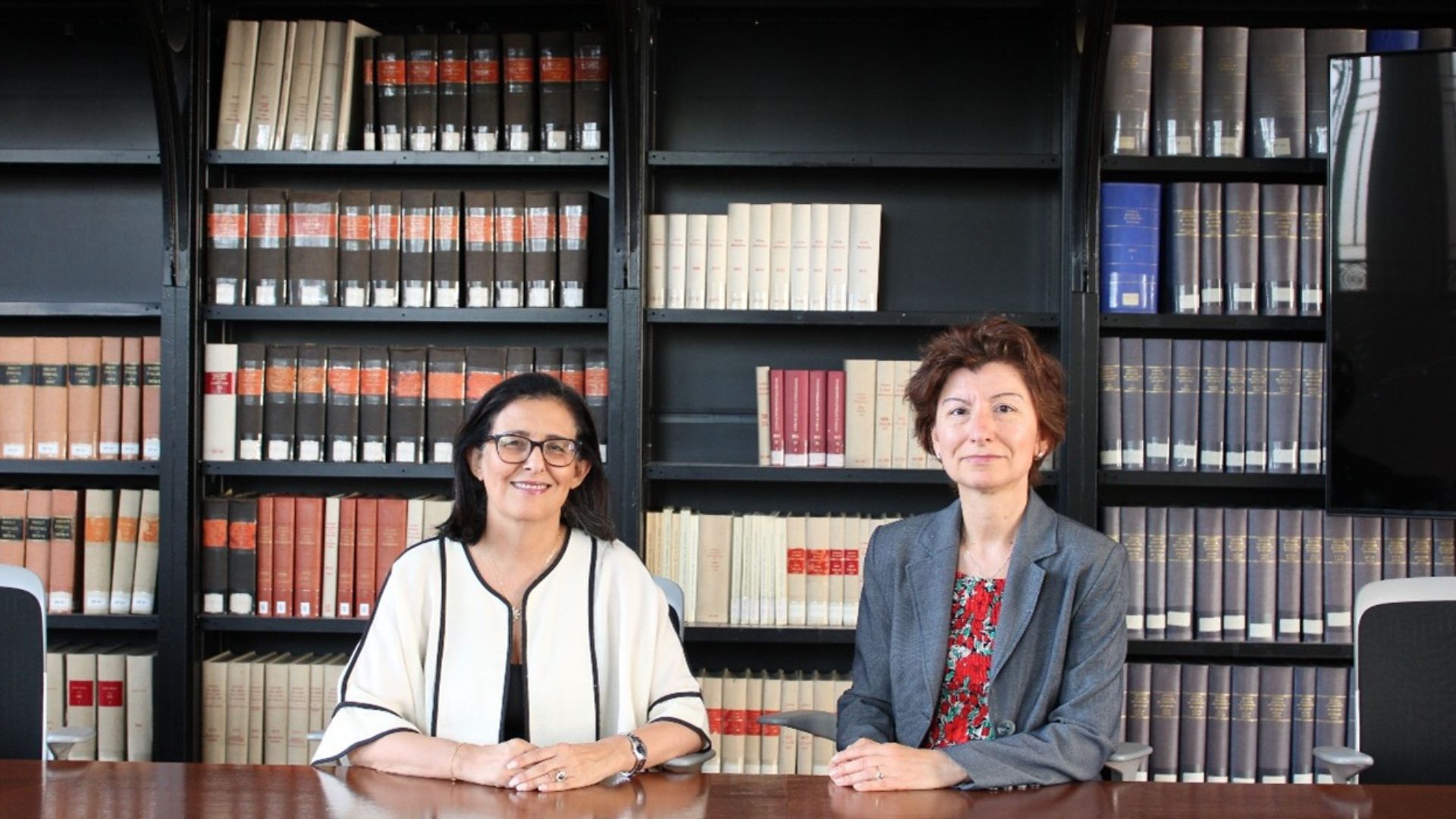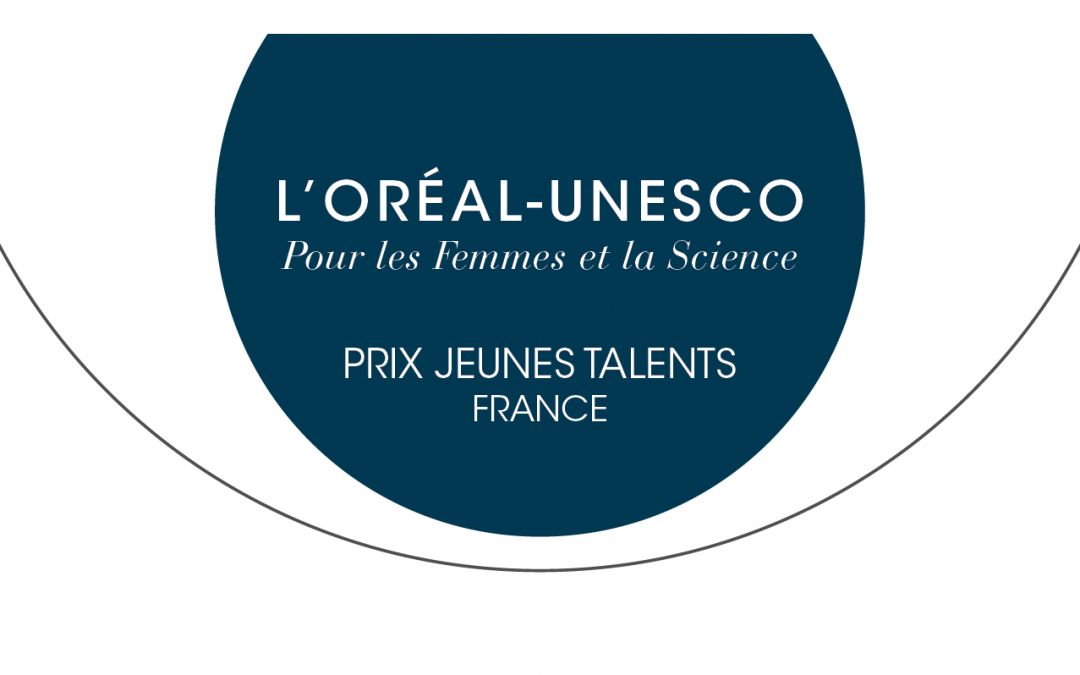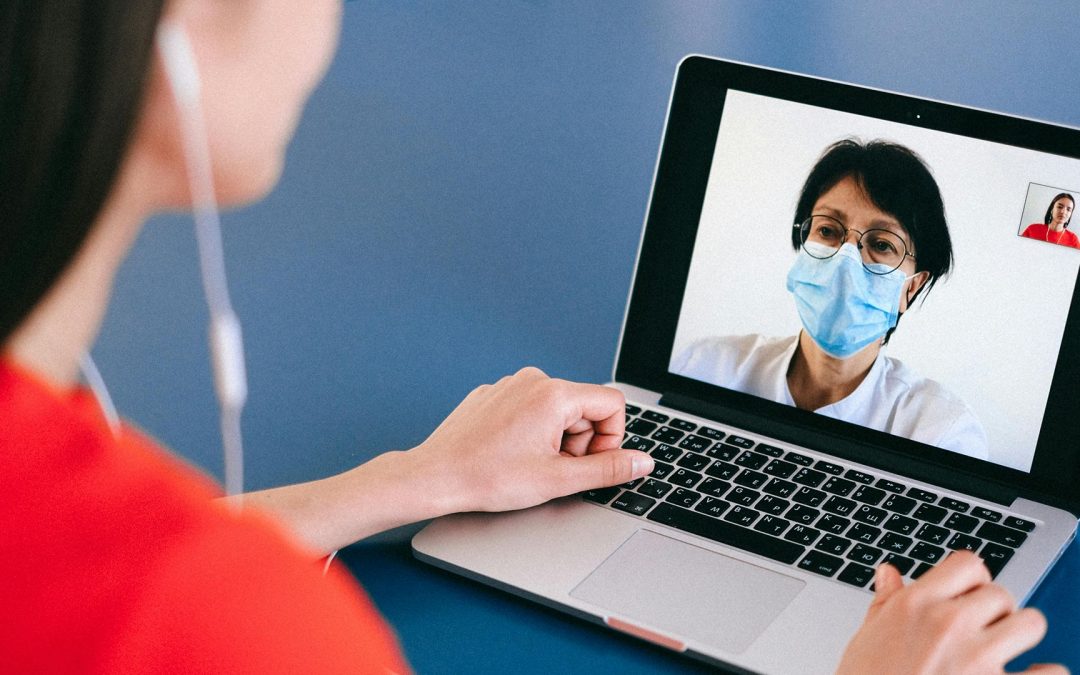Holder of the UNESCO Chair “Higher Education for Sustainable Development in Africa” at the University of Manouba in Tunisia, Jouhaina Gherib is also Vice-President of the International Association of Universities created by the UNESCO in 1950. During her visit to Université Paris Cité, she is strengthening collaboration with the Graduate School Sustainability, Organisations and Institutions, a partner of the Chair, around the theme of social responsibility of organizations. Today, she shares insights on the main areas of the Chair, the initiatives undertaken, and the collaboration between the University of Manouba and Université Paris Cité.

On the left, Jouhaina Gherib, holder of the UNESCO Chair, and on the right, Petia Koleva, head of the Graduate School Sustainability, Organisations and Institutions.
Could you remind us of the objectives of the UNESCO Chair “Higher Education for Sustainable Development in Africa” at the University of Manouba (UMA)?
This UNESCO Chair aims to train, raise awareness, and produce knowledge around the social responsibility of organizations in Africa. Research in this field needs to be further developed in African countries and in the Global South more broadly, and this can only be strengthened and gain visibility through international cooperation.
The idea of the Chair is to educate young people so that they become more responsible in Africa and beyond, and to ensure that this new generation is more aware, more active in the field of sustainable development. The Chair makes it possible to assess what has been achieved so far and to integrate higher education more closely into what will be defined for future generations in the upcoming United Nations agendas. The Chair therefore also seeks to ensure that higher education has a stronger presence, that young people have a stronger presence, that Africa has a stronger presence, and that their voices are heard at the highest level.
What are the main areas of the Chair and how do they fit into the partnership with the Graduate School Sustainability, Organisations and Institutions at Université Paris Cité?
On the research side, we are working on the dynamics of organizational transformations in response to sustainability challenges. This is a subject I am working on with Petia Koleva, head of the Graduate School Sustainability, Organisations and Institutions, and Amel Ben Rhouma, co-head of the Graduate School Sustainability and Transitions. It was therefore very natural for us to involve the Graduate School Sustainability, Organisations and Institutions in the Chair.
On the education side, we would like to offer complementary modules in the field of social responsibility of organizations within our two universities.
Another major focus of the Chair is university life. For example, at the University of Manouba, we have launched sustainable development clubs called “GREEN UMA” which bring together all the university’s committed students. We want to create groups within each of the university’s fifteen institutions so that students can develop their own three-year action plans, reflect on how to raise awareness among their peers, and implement concrete actions on their campuses.
I think several initiatives at Université Paris Cité could complement what we are doing. I encourage collaboration between students from both universities, particularly through joint projects, so that together, as young people of the same generation but from different backgrounds, they can address the challenges they will inevitably face jointly in the not-so-distant future.
The Chair is therefore a valuable platform because it is built on trust among its faculty members around the world. With this trust, we now need to pass the baton to the students, who can help us identify what needs to be done on the ground and imagine the future. I am convinced that this must be done in every country in the world, and I am delighted that it can be done in our two universities through this partnership.
Can you tell us about the Chair’s current activities and the joint projects being considered?
On the research side, we continue to work on the dynamics of organizational transformations in response to sustainability challenges from an international comparative perspective. We are also embarking on a new line of research on the history of the african university, which is not well known at all. Few people know, for instance, that the oldest universities in the world still in operation are located in Africa, specifically in Tunisia (University of Ezzitouna,737), Morocco (University of al-Qaraouiyine, 859), and Egypt (University of Al-Azhar, 970). The idea is to retrace the history of African universities and show that they have a long tradition; even though today universities do not necessarily have the capacity to transform their societies, for many reasons, including, among others, the colonial period, which slowed down this development. On the education side, we want to launch a Master’s program in African Studies at the University of Manouba. There is already a Master’s in another Tunisian university, so ours would be the second. It is a very promising project because we want to show what african studies can truly contribute to Africa and beyond, and we want this to be carried out with African expertise while remaining open to the rest of the world.
We also have teams working on an advocacy proposal to be presented to the public authorities in our countries, then at the continental level, and finally at the United Nations level, on higher education after 2030. The voice of higher education has not been heard enough so far, even though the university is involved transversally in some of the Sustainable Development Goals (SDGs). The idea is to become a driving force in saying that the next agenda cannot be shaped without universities. It is essential to make universities’ voices heard, in all their diversity and complementarity: voices from the South, voices from the North, from the humanities, and from the sciences. This is work we must do to be more audible to policymakers and the UNESCO Chair has made it one of its core objectives.
What are the possible projects for collaboration between Université Paris Cité and the University of Manouba?
A student mobility project between our two universities is under discussion. The idea is to welcome students from Université Paris Cité, and not only send students from the South to the North. I believe it is important to strengthen mobility and work towards a better balance in this area. Students from the North must also be made aware of the importance of immersing themselves in a different environment and they might realize that it is not so different after all. There are inventive solutions and initiatives in other countries that are just as valuable. This is important for young people.
Our two universities have been collaborating since 2011. Last February, I revived the idea of signing an agreement between the two universities to establish a legal framework that would allow us to implement initiatives in a more structured way. I strongly encourage this to be formalized as soon as possible.
What advice would you give to young researchers and students who want to contribute to sustainable development in their region?
I believe in the power of small actions, in the solutions provided to small issues and to locally expressed needs. I also think it is essential to show empathy and to listen to the local community in order to provide concrete answers. Of course, these local responses would benefit from being connected to broader initiatives in order to secure funding, increase visibility, and gain recognition. It is therefore necessary to start at the local level and link it to the global.
Climate change is a major concern that everyone must address, but in order to hope to solve it globally, actions at the regional and local level are crucial. Tackling small problems locally helps build legitimacy within the community. Providing a concrete solution to one of its problems makes people listen, establishes trust, and creates the conditions needed to implement change and overcome resistance.Trust is fundamental and it is earned through tangible achievements, sincere discourse, and attentive listening. Once trust has been established and local initiatives implemented, making them visible is essential to create a virtuous circle and to connect these locally produced actions, serving the community, to something larger and more impactful. International cooperation is crucial at this level. The UNESCO Chair has also made this one of its objectives and relies on cooperation with Université Paris Cité to accelerate its realization.
À lire aussi

Téléchargez MyUPCité, la première version de l’application étudiante de l’université
L’Université Paris Cité lance MyUPCité, votre toute nouvelle application mobile étudiante, dans sa version test. Celle-ci propose déjà plusieurs fonctionnalités clés pour vous simplifier le quotidien et sera progressivement enrichie grâce aux retours des étudiantes et...
read more
Prix Jeunes Talents France L’Oréal-UNESCO Pour les Femmes et la Science : Appel à candidatures 2026
La Fondation L'Oréal, en partenariat avec la Commission nationale française pour l'UNESCO et l'Académie des sciences, déclare officiellement ouvert l'appel à candidatures de l'édition 2026 du Prix Jeunes Talents France L'Oréal-UNESCO Pour les Femmes et la Science :...
read more
International Day of Women and Girls in Science: celebrating the women who push research forward
February 11 was the International Day of Women and Girls in Science. On this day, Université Paris Cité reaffirms its commitment to the equality between men and women and celebrates the journey of the women who advance research. Between celebrating our heritage and...
read more
Suivi des maladies chroniques : un patient sur deux serait ouvert à la téléconsultation
L’étude REACTIVE, coordonnée par la Dre Tiphaine Lenfant et le Pr Viet-Thi Tran et menée par des équipes de médecine interne de l’hôpital européen Georges-Pompidou AP-HP, du centre d’épidémiologie clinique de l’hôpital Hôtel-Dieu AP-HP, de l’Université Paris Cité, de...
read more